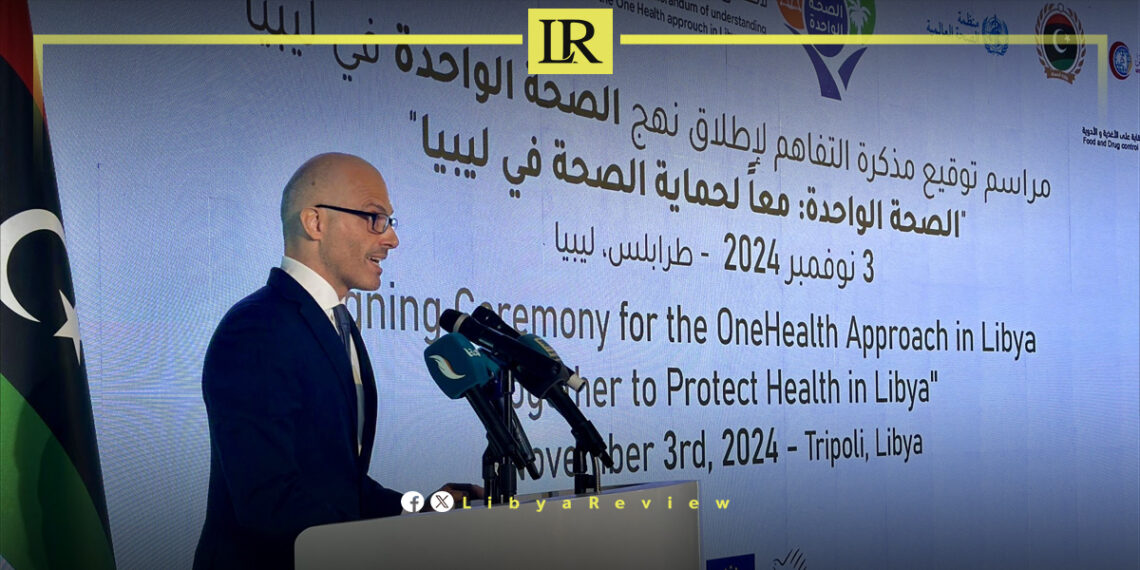The European Union’s Ambassador to Libya, Nicola Orlando, emphasized the EU’s commitment to supporting the independence of Libya’s Audit Bureau and ensuring transparency in public resource management.
During a phone call with the Head of the Audit Bureau, Khaled Shakshak, Orlando highlighted the Bureau’s critical role in fostering accountability and transparent governance of state resources.
The ambassador expressed the EU’s interest in recent developments within the Audit Bureau, stressing the importance of coordination with the United Nations Support Mission in Libya (UNSMIL) to bolster transparency and oversight efforts. He also underscored the need to protect the Bureau’s independence from any external interference that might hinder its operations.
The EU’s support comes amid growing calls for improved governance and financial accountability in Libya, aligning with international efforts to strengthen institutional integrity.
Libya has been in chaos since a NATO-backed uprising toppled longtime leader Muammar Gaddafi in 2011. The county has for years been split between rival administrations.
Libya’s economy, heavily reliant on oil, has suffered due to the ongoing conflict. The instability has led to fluctuations in oil production and prices, impacting the global oil market and Libya’s economy.
The conflict has led to a significant humanitarian crisis in Libya, with thousands of people killed, and many more displaced. Migrants and refugees using Libya as a transit point to Europe have also faced dire conditions.
The planned elections for December 2021 were delayed due to disagreements over election laws and the eligibility of certain candidates. This delay has raised concerns about the feasibility of a peaceful political transition.
Despite the ceasefire, security remains a significant concern with sporadic fighting and the presence of mercenaries and foreign fighters. The unification of the military and the removal of foreign forces are crucial challenges.


